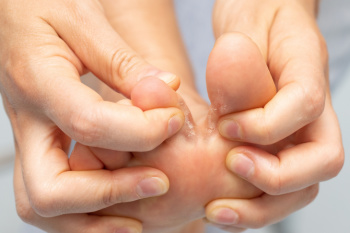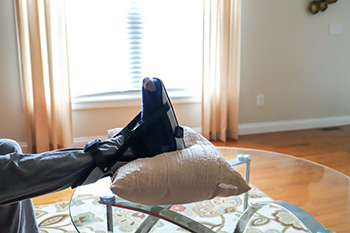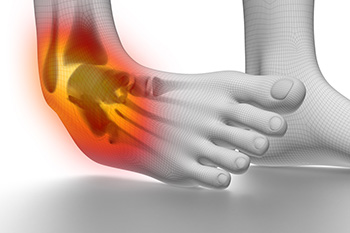
Recovering from a sprained ankle involves more than just rest and elevation. Therapeutic exercises can play a significant role in speeding up recovery and ensuring that your ankle is strong and stable. When ligaments in the ankle do not heal correctly, they remain weak and are prone to future injuries. A podiatrist can recommend a range of exercises to aid your recovery, and it is essential to follow their advice to avoid chronic ankle pain. One such exercise is the ABCs, where you sit with your foot in the air and trace the alphabet with your toes to improve your range of motion. The dorsiflexion stretch involves using a towel to gently pull your toes towards you, which increases flexibility. Toe curls and eversion exercises with a towel help in strengthening and stabilizing the ankle. Each exercise should be performed slowly and without pain to avoid aggravating the injury. Additionally, it is beneficial to check with your podiatrist before undertaking any kind of ankle exercise routine. If you have a sprained ankle, it is suggested that you schedule an appointment with a podiatrist for an exam, diagnosis, and treatment options.
Ankle sprains are common but need immediate attention. If you need your feet checked, contact one of our podiatrists from Foot Health Center of Merrimack Valley. Our doctors can provide the care you need to keep you pain-free and on your feet.
How Does an Ankle Sprain Occur?
Ankle sprains take place when the ligaments in your ankle are torn or stretched beyond their limits. There are multiple ways that the ankle can become injured, including twisting or rolling over onto your ankle, putting undue stress on it, or causing trauma to the ankle itself.
What Are the Symptoms?
- Mild to moderate bruising
- Limited mobility
- Swelling
- Discoloration of the skin (depending on severity)
Preventing a Sprain
- Wearing appropriate shoes for the occasion
- Stretching before exercises and sports
- Knowing your limits
Treatment of a Sprain
Treatment of a sprain depends on the severity. Many times, people are told to rest and remain off their feet completely, while others are given an air cast. If the sprain is very severe, surgery may be required.
If you have suffered an ankle sprain previously, you may want to consider additional support such as a brace and regular exercises to strengthen the ankle.
If you have any questions please feel free to contact one of our offices located in North Andover, and Tewksbury, MA . We offer the newest diagnostic and treatment technologies for all your foot and ankle needs.

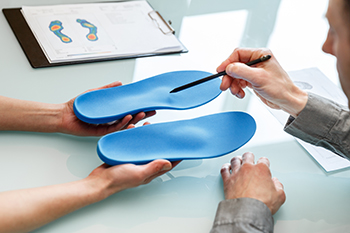 Charcot-Marie-Tooth,
Charcot-Marie-Tooth,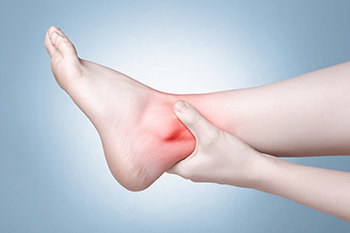

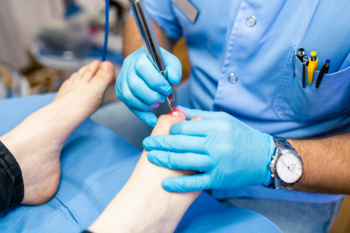 Laser treatment for toenail fungus
Laser treatment for toenail fungus 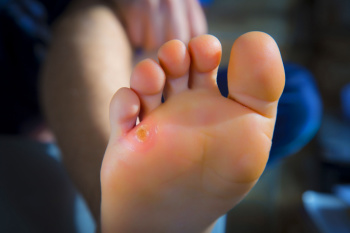 Corns
Corns 
